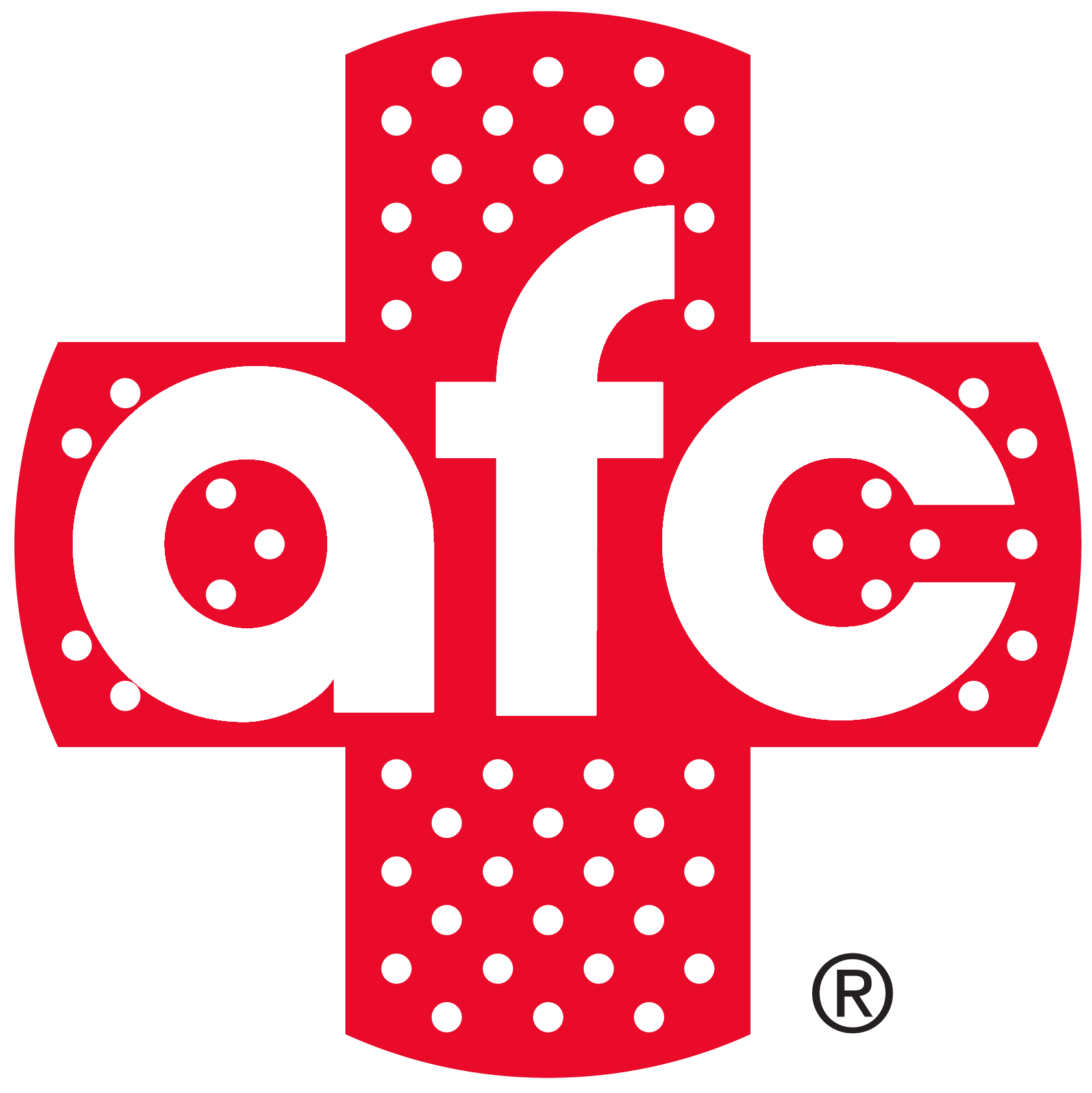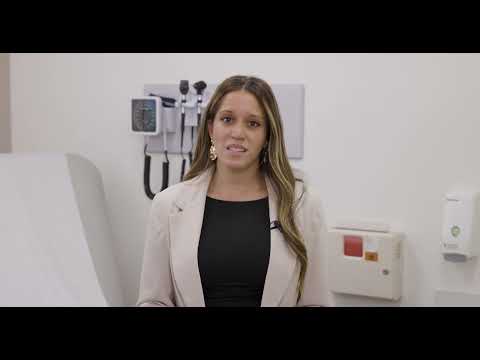Find The Location Nearest Covid-19 Testing
We think you’re located in zip code 06516. Not Right?
Seasonal Allergy Treatment
Seasonal Allergy Treatment is essential for individuals experiencing discomfort from allergy symptoms triggered by environmental changes. At AFC Urgent Care West Haven, we understand the profound impact seasonal allergies can have on your quality of life. If you're allergic to pollen, effective management becomes crucial during peak seasons, particularly in spring and fall when pollen counts are at their highest.
The treatment of seasonal allergies often involves a multifaceted approach that combines allergy medications, lifestyle adjustments, and environmental control measures to minimize exposure to allergens. Our team at AFC Urgent Care West Haven is dedicated to providing comprehensive care, ensuring that patients have access to the best possible treatments tailored to their specific needs.
Understanding Seasonal Allergies
Seasonal allergies, also known as hay fever or allergic rhinitis, occur when your immune system overreacts to allergens present in the environment. Common triggers include pollen from trees, grasses, and weeds, as well as mold spores and dust. When these allergens enter the body, the immune system releases chemicals like histamines, leading to symptoms such as:
- Sneezing: A common reaction to irritants in the nasal passages.
- Runny or Stuffy Nose: Inflammation and increased mucus production can cause congestion.
- Itchy Eyes, Nose, and Throat: Irritation from allergens can lead to discomfort in these areas.
- Fatigue: Allergic reactions can cause exhaustion due to constant inflammation and discomfort.
As the seasons change, many individuals find themselves grappling with these frustrating symptoms. From the gentle bloom of spring flowers to the crisp air of autumn leaves, these natural transitions can trigger a cascade of allergic reactions that disrupt daily life.
Treatment Options Available at AFC Urgent Care West Haven
At AFC Urgent Care West Haven, we provide effective seasonal allergy treatment options that can help alleviate these distressing symptoms. Our approach includes a combination of over-the-counter antihistamines, prescription medications, and natural remedies, ensuring that we meet the unique needs of each patient.
- Antihistamines: These medications work by blocking histamines, the chemicals responsible for allergy symptoms. They can help alleviate sneezing, itching, and runny noses. Available in various forms, including tablets, liquids, and nasal sprays, antihistamines can provide quick relief for many individuals.
- Nasal Corticosteroids: These prescription medications help reduce inflammation in the nasal passages. By decreasing swelling and mucus production, they can provide long-term relief from nasal congestion and other symptoms.
- Decongestants: Available in both oral and nasal spray forms, decongestants work by shrinking swollen blood vessels in the nasal passages, helping to relieve nasal congestion and pressure.
- Immunotherapy: For patients with persistent symptoms, we may recommend immunotherapy, such as allergy shots or sublingual tablets. This treatment gradually desensitizes the immune system to specific allergens over time, providing long-lasting relief.
- Natural Remedies: Many individuals seek effective treatment options that can be implemented at home. Natural remedies, such as saline nasal rinses and herbal supplements, can help alleviate symptoms without the side effects often associated with traditional medications.
Severe Seasonal Allergy Symptoms Treatment
For those experiencing severe seasonal allergy symptoms, timely treatment at AFC Urgent Care West Haven is crucial, especially during pollen season. Common symptoms include nasal congestion, sneezing, itchy eyes, and fatigue, which can be particularly debilitating. Our healthcare providers focus on comprehensive treatment plans that combine medications and lifestyle modifications to improve your overall well-being.
Recognizing Severe Symptoms
Severe seasonal allergies can significantly impact daily activities, work, and overall quality of life. Recognizing when symptoms escalate is key to effective management. Symptoms such as:
- Persistent Nasal Congestion: Difficulty breathing through the nose may lead to mouth breathing and disrupted sleep.
- Chronic Coughing or Wheezing: Allergies can exacerbate asthma symptoms, leading to respiratory complications.
- Severe Fatigue: Ongoing allergy symptoms can lead to exhaustion and hinder productivity.
If you experience these severe symptoms, it’s essential to seek medical advice from our team at AFC Urgent Care West Haven. We may recommend a combination of over-the-counter antihistamines, decongestants, and prescription medications to provide immediate relief.
Comprehensive Allergy Management
Managing severe allergy symptoms effectively often involves personalized treatment plans. At AFC Urgent Care West Haven, we conduct thorough evaluations to identify specific triggers through allergy testing. This information allows us to tailor treatment strategies that address your unique needs.
- Medication Adjustments: Based on the severity of your symptoms, we may adjust your medication regimen to include higher doses or a combination of different medications.
- Lifestyle Changes: Our team emphasizes the importance of lifestyle modifications to reduce exposure to allergens. Simple strategies like keeping windows closed during high pollen seasons, using air conditioning, and avoiding outdoor activities during peak pollen times can significantly improve symptoms.
Most Effective Seasonal Allergy Treatment
At AFC Urgent Care West Haven, finding the most effective seasonal allergy treatment is a priority for our patients. We recognize that no single treatment fits everyone, and our goal is to provide a range of options tailored to your needs.
Treatment Modalities
- Over-the-Counter Options: Many patients find relief using over-the-counter antihistamines, which can be effective for managing symptoms like sneezing, runny noses, and itchy eyes. Brands like loratadine, cetirizine, and diphenhydramine offer quick relief without the need for a prescription.
- Prescription Medications: For individuals with more persistent symptoms, we may recommend prescription-strength medications, including stronger antihistamines and nasal corticosteroids. These medications often provide better control of allergy symptoms and may be necessary for patients with severe reactions.
- Allergen Immunotherapy: For those struggling with chronic symptoms despite conventional treatments, allergen immunotherapy may be the best solution. This method involves gradually exposing the patient to specific allergens in controlled doses, allowing the immune system to build tolerance over time.
- Monitoring Pollen Levels: One effective strategy is monitoring local pollen counts. At AFC Urgent Care West Haven, we provide resources and guidance to help patients stay informed about pollen levels, allowing for proactive management of symptoms.
Tailored Solutions
Understanding your specific triggers and utilizing the most appropriate treatments can significantly enhance your quality of life. Our healthcare providers are committed to helping you develop a comprehensive allergy management plan that includes regular follow-ups to assess treatment effectiveness.
Best Treatment for Severe Seasonal Allergies
Seasonal allergies encompass a range of conditions that can lead to debilitating symptoms, particularly during high pollen seasons. For those experiencing severe symptoms, AFC Urgent Care West Haven offers a variety of effective treatment options to manage and alleviate discomfort.
Treatment Approaches
- Antihistamines: Often the first line of defense, antihistamines can quickly alleviate symptoms by blocking the effects of histamines released during allergic reactions.
- Nasal Corticosteroids: These medications are particularly effective in treating nasal symptoms, as they reduce inflammation and mucus production. Regular use can prevent symptoms from becoming severe.
- Allergy Shots: For individuals with chronic and severe allergies, allergy shots may be necessary. These injections help your body become less sensitive to allergens over time.
- Environmental Control Measures: Minimizing exposure to allergens is a critical component of managing severe allergies. At AFC Urgent Care West Haven, we emphasize strategies like keeping windows closed, using high-efficiency particulate air (HEPA) filters, and maintaining clean indoor environments to reduce allergen exposure.
Lifestyle Modifications
Making simple lifestyle changes can significantly improve your experience during allergy season. For instance, showering and changing clothes after being outdoors can help remove pollen and other allergens from your body.
What is the Best Treatment for Seasonal Allergies
When considering what is the best treatment for seasonal allergies, a multifaceted approach often yields the best results. At AFC Urgent Care West Haven, we provide comprehensive assessments to determine the most effective treatment plan for each individual.
Combining Therapies
- Antihistamines and Corticosteroids: A combination of over-the-counter antihistamines and nasal corticosteroids often proves effective for many patients. While antihistamines relieve immediate symptoms, corticosteroids address underlying inflammation.
- Immunotherapy for Long-Term Relief: For patients with persistent allergies, allergen immunotherapy might be the most effective long-term solution. This therapy can provide sustained relief from symptoms and improve overall quality of life.
- Patient Education: Educating patients about their specific allergies and how to manage them is a cornerstone of effective treatment. At AFC Urgent Care West Haven, we prioritize patient education, providing resources and strategies to help individuals navigate allergy seasons successfully.
Does Medicare Cover Seasonal Allergy Treatment
Many individuals wonder if Medicare covers seasonal allergy treatment. Understanding your coverage options can help you access necessary care without unexpected costs.
Coverage Details
Generally, Medicare does not cover over-the-counter medications used for allergies, such as antihistamines or nasal sprays. However, if a doctor at AFC Urgent Care West Haven prescribes specific treatments or allergy testing is deemed medically necessary, those services may be eligible for coverage under Medicare Part B.
- Allergy Testing: If you require allergy testing to identify specific triggers, this service may be covered under Medicare, ensuring that you receive the appropriate diagnosis and treatment
- Prescription Medications: Certain prescription medications may also be covered, depending on your specific Medicare plan. It’s essential to consult our healthcare providers for personalized advice on coverage options and to understand what treatments may be available to you.
What is the Best Treatment for Seasonal Allergy Young Adults
At AFC Urgent Care West Haven, we understand that young adults often face unique challenges when managing seasonal allergies. Our team is dedicated to providing tailored solutions that meet their specific needs.
Effective Treatments
- Over-the-Counter Antihistamines: Many young adults find relief using over-the-counter antihistamines like loratadine and cetirizine, which are effective for managing symptoms without causing excessive drowsiness.
- Nasal Corticosteroids: These can significantly reduce inflammation and provide further relief for those with moderate to severe symptoms.
- Allergy Shots: For long-term relief, young adults should consider allergy shots if they have persistent symptoms. These shots can help build tolerance to allergens over time.
- Preventive Strategies: Encouraging young adults to limit outdoor activities during peak pollen times and implement preventive measures can greatly enhance their ability to manage symptoms effectively.
Consultation and Support
Consulting our healthcare providers can ensure a tailored approach based on individual symptoms and lifestyle. We prioritize open communication and provide ongoing support to help young adults navigate allergy seasons successfully.

 How Can We Help?
How Can We Help?
- PATIENT SERVICES
- COVID-19 SERVICES
- TELECARE
- EMPLOYER RESOURCES
- PATIENT RESOURCES
- ABOUT US
AFC Urgent Care FAQs
-
How can I tell if I have seasonal allergies or a cold?
Do you have a temperature or general aches and pains? If so, you're likely dealing with a cold, not seasonal allergies. Either way, AFC can help.
-
What are some common treatments for seasonal allergies?
Nasal steroid sprays, antihistamines, and decongestants are often used to treat seasonal allergies. While many of these can be purchased over the counter, some patients need prescription-strength allergy medicine.
-
How can I tell what I’m allergic to?
We can help you try to identify your triggers when you visit our clinic. Our providers know the right questions to ask and can help you get relief quickly.
Q&A You Want to Answer?

Don't wait to get the medical attention you need.
CALL US TODAY | (203) 896-7000



